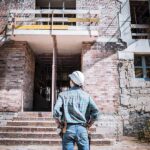The many restrictions, codes, and regulations controlling construction, renovation, and use of buildings can be intimidating for individuals and business owners thinking about a construction project. Working with a licensed general contractor from the earliest planning stages of a project can prevent frustrating and potentially costly problems from arising when an envisioned project is out of line with zoning ordinances or building codes.
Here is more basic information on zoning and permitting worth considering as you begin planning for renovations at home, building a new home, or expanding or starting a new business location.
About Zoning Regulations in the High Desert
Zoning ordinances use maps and documents to specify where in a community people can build or operate residential houses, apartment buildings, retail businesses, industrial facilities, government buildings, nursing homes, daycare centers, agricultural facilities, and other types of buildings and building uses.
Zoning ordinances also specify other details concerning the use of the space around buildings. These include what types of signage are allowed or prohibited, requirements for parking spaces at both residences and businesses, how much of a home may be used for a business, restrictions on the storage and use of hazardous materials, limitations on noise and odor, how many people may be employed at a location, and what kinds of jobs they may perform.
Challenging a Zoning Ordinance
Exceptions to a zoning ordinance are granted, and this exception is called a variance. A variance is often sought by homeowners wanting to start a home-based business in a residentially zoned area, and it is not uncommon for such a variance to be granted, especially when the business has few or no customers who regularly visit the location.
Businesses also often need a business license, environmental health permit, seller’s permit, fire certificate, or other permits to legally operate a business. Working with an experienced general contractor like Murphy Construction can ensure your project meets all zoning, planning, and building code requirements from the start.








